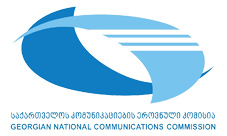
Oligopoly in Telecommunication Market
By Natalia Kochiashvili
Thursday, October 17
MagtiCom and Silknet Revenues are on the rise while the profits amid the same profile companies in the world are decreasing.
The Georgian Communications Regulatory Commission (GNRC) has released its 2018 annual report, which shows that the market operators' incomes have increased even further. Unfortunately, the report only talks about revenue, and not about the profits, though the existing figures suggest that the oligopolistic market situation is directed to enriching companies at the expense of consumers.
As is known, more than 80% of the complete telecommunications market is distributed amid two companies - MagtiCom and Silknet and they control the mobile operator market, internet marketplace and television market. Such a situation can be seen in very few countries in the world. Besides, as technology evolves worldwide, tariffs on both the telephone and the internet market is constantly decreasing. With no competition, MagtiCom and Silknet began increasing tariffs instead of lowering them.
This fact is also noted in the annual report - if regulators didn’t intervene, it is likely that tariffs on mobile internet would increase in 2018 as well (E.g. in early 2018, MagtiCom announced rise in mobile tariffs, but the commission launched a study on the purpose of subsidizing and suspended Magticom’s tariff change process.)
Also, to safeguard the right tariff policy and the interests of the users, the Georgian National Communications Commission (GNCC) has started studying the services provided by the companies in the consolidated tender of mobile communication. The study revealed that “MagtiCom and Geocell were subsidized within the framework of consolidated tender. Both companies have violated the Georgian Electronic Communications Law,” says the Regulatory Commission's annual report.
According to the Commission's report, the number of mobile subscribers reached 5.3 million by the end of 2018. Also, the number of corporate subscribers made up 25% of the total subscribers, which is a total of 1.333 million subscribers. By the end of 2018, mobile operators' market share by the number of subscribers was as follows: MagtiCom's market share rose to 40.3%, Silknet / Geocell - 35.8%, Vion Georgia - 23.9%.
In 2018, the mobile revenue of mobile operators was GEL 481 million, which is 7.3% higher than the retail revenue of 2017. In terms of retail revenue, MagtiCom's market share was 46.9%, Silknet / Geocell's 36.7% and Beeline's 16.4%.
Accordingly, in 2018 MagtiCom received GEL 225.5 million, Geocell / Silknet GEL 176.5 million and Beeline GEL 79 million. The annual report shows that in 2011, the companies' earnings declined sharply, all due to the strengthening of Beeline's positions and increased competition in the market. However, since MagtiCom bought the Caucasus Online retail chain and Silknet bought Geocell and created an oligopolistic market, the profits of the companies have been steadily increasing.
It is noteworthy that the growth rate of mobile revenue in Georgia exceeds the GDP growth rate in 2017 and 2018, which is not in line with the global trend, where since 2016, mobile income has been declining amid global GDP growth. The increase is partly because the excise tax on mobile services has been abolished and companies have not reduced tariffs in response.
If the decline in revenue was driven by competition in the market in 2011, the decline in 2015 was due to a reduction in the interconnection tariff from 5 tetri to 3.5 tetri. Also, according to 2018 data, the average revenue per month from one subscriber to averaged GEL 8.2. Compared to 2017, this figure increased by 80 tetri.
As the Regulatory Commission's report points out, fixed broadband internet service in Georgia, as in previous years, is characterized by a steadily increasing trend both in terms of the number of subscribers and in terms of revenue. Optical technology is developing and its density is increasing in the total number of subscribers. In 2018, regions had higher growth rates than the capital, compared to previous years. The market for broadband internet services in Tbilisi is almost saturated, and in the regional cities and villages, especially where optical technology has become available, the number of fixed broadband subscribers is increasing.
It is noteworthy that the individual income from subscribers is 70% of the total amount, while the number of such subscribers is 95% of the total market. This indicates that the subscriber service charge for a legal entity is significantly higher than the subscription fee paid by a subscriber.
The oligopolistic situation on the market also shows that 83% of total revenue is generated by 2 companies, and the remaining 13% by 168 companies. MagtiCom holds 44.6% of its market share, 36.9% of Silknet and 5.9% of New Networks Group.



